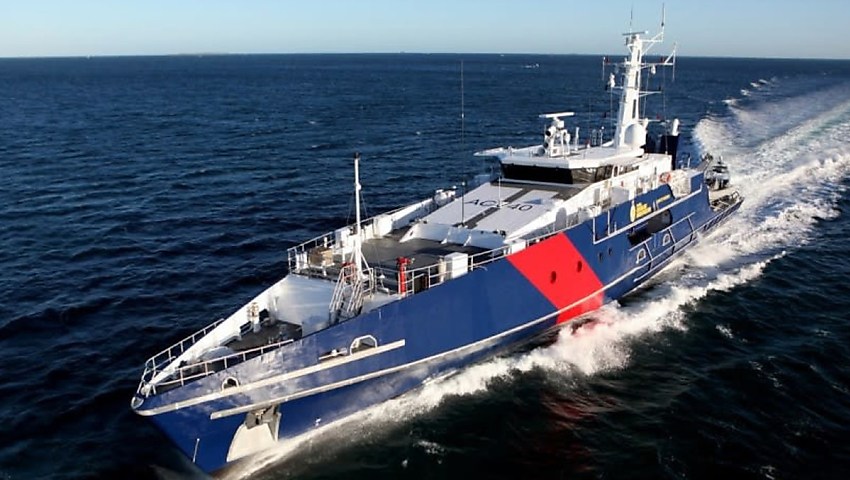Leading Australian naval and strategic policy expert Jennifer Parker, with the support of the Australian Naval Institute, has published a new issue paper titled Time for a Coastguard: Maritime Threats Require a Structural Rethink, calling for the formal creation of an Australian Coast Guard.
Jennifer Parker’s latest paper, Time for a Coastguard: Maritime Threats Require a Structural Rethink, published by the Australian Naval Institute, argues for the establishment of an Australian Coastguard to manage such evolving threats.
With Australia’s Defence Strategic Review shifting the focus of the Australian Defence Force (ADF) to higher-end warfighting, the time has come to re-examine our approach to maritime security.
Parker explained that the increasing level of geopolitical and strategic competition in the Indo-Pacific and more broadly across the globe, particularly following reports of state-based actor conducting surveillance and sabotage off the coast of Germany, has placed increased pressure on the nation’s need for a formalised Coast Guard.
Parker said, “It has been nearly 20 years since the 2004 Tonkin Review raised the possibility of creating a coastguard, but the strategic landscape has transformed dramatically. The increased contestation of the maritime domain, from sabotage to grey-zone activities, demands a rethink of how we secure our vast waters.”
Australia’s vast exclusive economic zone, spanning over 10 million square kilometres, combined with its reliance on maritime trade and infrastructure, requires a robust and cohesive approach to maritime security.
Parker’s report identified three key points, namely:
- Increased maritime threats: The paper underscores the blurring of civil and military threats in the maritime domain. From illegal fishing and hybrid warfare tactics to the targeting of critical infrastructure like subsea cables, Australia’s reliance on its seas makes it highly exposed to these risks.
- Need for structural change: Australia’s current reliance on a fragmented, multi-agency approach – heavily dependent on ADF resources – is unsustainable. A professional coastguard with paramilitary capabilities would reduce pressure on the ADF and address the evolving complexity of maritime challenges.
- Policy recommendations: Parker calls for a statutory Australian Coastguard under the Minister for Home Affairs, equipped with dedicated resources and personnel transferred from existing agencies. The coastguard would manage civil maritime security while allowing the ADF to focus on its core responsibilities in competition and conflict scenarios.
The growing frequency and complexity of incidents across the maritime domain from Europe to the South China Sea demonstrate that the maritime domain is increasingly contested, and years of reporting on issues associated with Australia’s current structure demonstrate it is inadequate to meet the growing challenges.
“Australia must act to establish a coastguard that bridges the gap between civil and military maritime security, ensuring resilience in an increasingly contested maritime environment,” Parker said.
The paper, part of the Australian Naval Institute’s Occasional Paper Series, is available through its website from Friday, 22 November. It generates an important discussion on addressing Australia’s maritime security challenges while strengthening national resilience.


